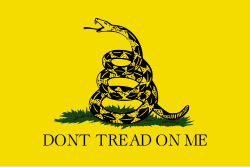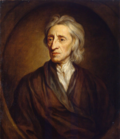Introduction
| Part of a series on |
| Libertarianism |
|---|
Libertarians advocate the expansion of individual autonomy and political self-determination, emphasizing the principles of equality before the law and the protection of civil rights, including the rights to freedom of association, freedom of speech, freedom of thought and freedom of choice. They generally support individual liberty and oppose authority, state power, warfare, militarism and nationalism, but some libertarians diverge on the scope and nature of their opposition to existing economic and political systems. (Full article...)
Selected article
The Austrian School is a heterodox school of economic thought that emphasizes the spontaneous organizing power of the price mechanism. Its name derives from the identity of its founders and early supporters, who were citizens of the old Austrian Habsburg Empire, including Carl Menger, Eugen von Böhm-Bawerk, Ludwig von Mises and Nobel laureate Friedrich Hayek. Currently, adherents of the Austrian School can come from any part of the world, but they are often referred to simply as Austrian economists and their work as Austrian economics.
The Austrian School was influential in the late 19th and early 20th century. Austrian contributions to mainstream economic thought include involvement in the development of the neoclassical theory of value and the subjective theory of value on which it is based as well as contributions to the "economic calculation debate" which concerns the allocative properties of a centrally planned economy versus a decentralized free market economy. From the middle of the 20th century onwards, it has been considered outside the mainstream, with notable criticisms related to the Austrian School leveled by economists such as Bryan Caplan, Jeffrey Sachs and Nobel laureates Paul Samuelson, Milton Friedman and Paul Krugman. Followers of the Austrian School are now most frequently associated with American libertarian political perspectives that emanate from such bodies as the Ludwig von Mises Institute and George Mason University in the United States.
Austrian School principles advocate strict adherence to methodological individualism—analyzing human action exclusively from the perspective of an individual agent. Austrian economists also argue that mathematical models and statistics are an unreliable means of analyzing and testing economic theory and advocate deriving economic theory logically from basic principles of human action, a method they term "praxeology". Additionally, whereas experimental research and natural experiments are often used in mainstream economics, Austrian economists contend that testability in economics is virtually impossible since it relies on human actors who cannot be placed in a lab setting without altering their would-be actions. Mainstream economists are generally critical of methodologies used by modern Austrian economists—in particular, a primary Austrian School method of deriving theories has been criticized by mainstream economists as a priori "non-empirical" analysis and differing from the practices of scientific theorizing as widely conducted in economics.
Austrian School economists generally hold that the complexity of human behavior makes mathematical modeling of an evolving market extremely difficult (or undecidable) and advocate a laissez faire approach to the economy. They advocate the strict enforcement of voluntary contractual agreements between economic agents and hold that commercial transactions should be subject to the smallest possible imposition of coercive forces. In particular, they argue for an extremely limited role for government and the smallest possible amount of government intervention in the economy.
Selected quote
| “ | My idea of a perfect government is one guy who sits in a small room at a desk, and the only thing he's allowed to decide is who to nuke. The man is chosen based on some kind of IQ test, and maybe also a physical tournament, like a decathlon. And women are brought to him, maybe...when he desires them. | ” |
| — Ron Swanson (2009) Parks and Recreation (Season 1) |
Selected picture
 |
General images
Selected biography -
Randy Evan Barnett (born February 5, 1952) is an American legal scholar. He serves as the Patrick Hotung Professor of Constitutional Law at Georgetown University, where he teaches constitutional law and contracts, and is the director of the Georgetown Center for the Constitution.
After graduating from Northwestern University and Harvard Law School, Barnett tried felony cases as a prosecutor in the Cook County State's Attorney's Office in Chicago. A recipient of a Guggenheim Fellowship in Constitutional Studies and the Bradley Prize, Barnett has been a visiting professor at Penn, Northwestern and Harvard Law School. (Full article...)
Related portals
Parent portals
Socio-political portals
Topics
Categories
Points of interest
| Points of interest related to Libertarianism on Wikipedia: History – Portal – Category – WikiProject – Alerts – Deletions – Assessment |
Associated Wikimedia
The following Wikimedia Foundation sister projects provide more on this subject:
-
Commons
Free media repository -
Wikibooks
Free textbooks and manuals -
Wikidata
Free knowledge base -
Wikinews
Free-content news -
Wikiquote
Collection of quotations -
Wikisource
Free-content library -
Wikiversity
Free learning tools -
Wiktionary
Dictionary and thesaurus
© MMXXIII Rich X Search. We shall prevail. All rights reserved. Rich X Search




































